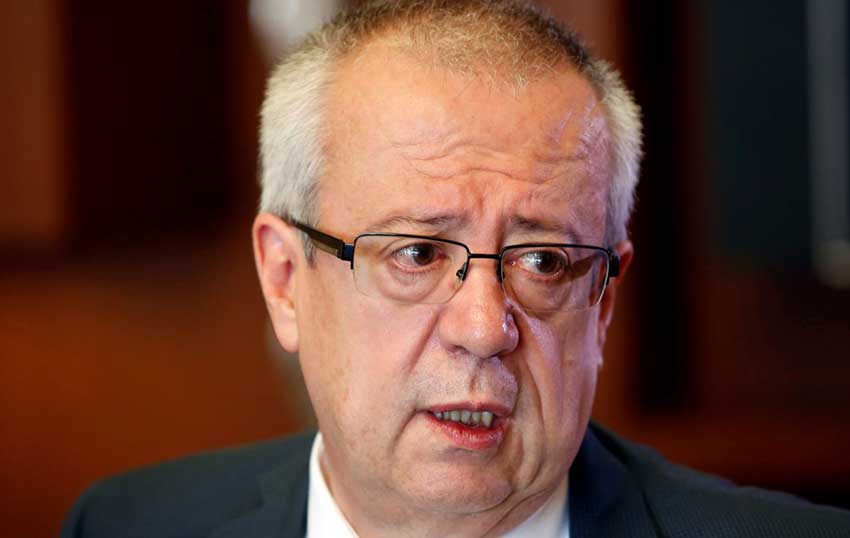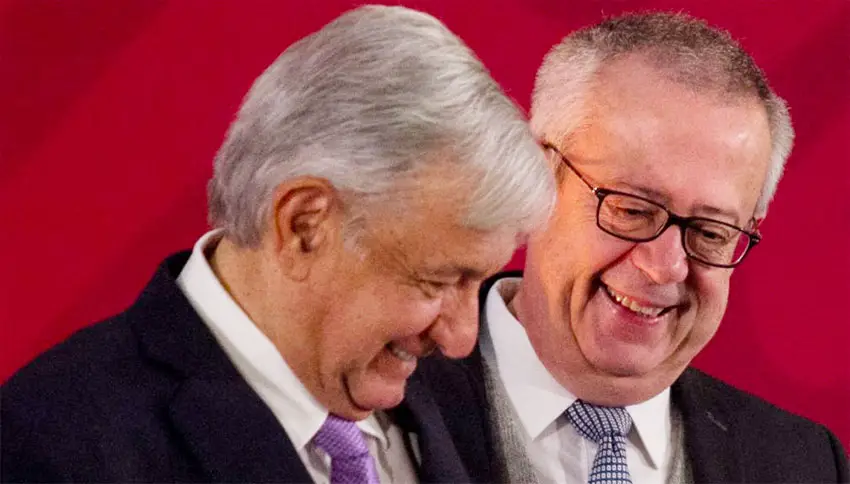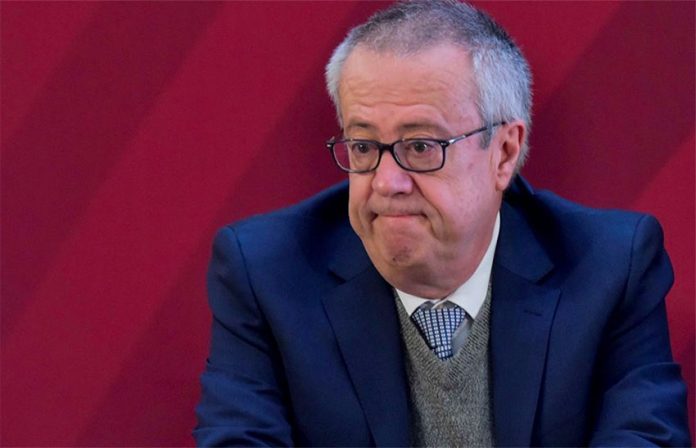The main economic problem faced by the federal government and its state counterparts is a lack of money, says former finance minister Carlos Urzúa.
In an interview with the Spanish newspaper El País, Urzuá – President López Obrador’s finance minister from December 2018 until his resignation in July 2019 – called Mexico’s economic situation bad, asserting that the coronavirus crisis has “sent us on a downward spiral.”
However, Mexico’s economy was in trouble before Covid-19 hit, he sad.
“To understand what is happening in Mexico, at least in economic terms, is not difficult because it has been very well diagnosed for a long time. What is the main problem you face whether you’re the federal government or a state government? Essentially that you don’t have money,” Urzúa said.
The ex-minister said that tax collection in Mexico is only about 14% of GDP, an amount he said is insufficient to remedy the problems the country faces.

“When you have tax collection like that, unless you have very large extra profits from … fuel or copper, like in Chile, … nothing will turn out well because it’s far too little money for the magnitude of the problems you face. The vast majority of countries in Latin America have tax collection of at least 20% of GDP,” Urzúa said.
He said the lack of tax revenue has prevented Mexico from being able to provide better education, healthcare and other essential services to citizens.
Urzúa, now a professor of economics at the Tec de Monterrey university, said that “every now and then, oil deposits save us” by injecting additional revenue into the government’s coffers but that is not currently the case.
“There’s simply no money, that’s the first thing,” he said.
The ex-minister said that both individuals and companies in Mexico “are not used to paying a lot of taxes” and that political leaders have contributed to the low tax collection problem because they have removed more taxes than they have implemented.
López Obrador’s administration has ramped up efforts to collect unpaid taxes but Urzúa said the president has made it clear that he doesn’t want to impose new ones.
“López Obrador has always been very clear. He doesn’t want taxes. I think that he shouldn’t have said that but he says it and repeats it all the time. One of the reasons he said it was obviously to win votes,” he said.
Urzúa said that a second significant economic problem for the government is that there is insufficient private and public investment to stimulate growth.
He said that investment of at least 25% of GDP is needed for the country to grow but in López Obrador’s first year in office, investment failed to reach that mark and in fact fell compared to the previous year.
“If I remember correctly, [total investment] was 22.4% in 2018, 3.3% was public investment and 19.1% was private investment, both national and foreign. … What happened in 2019? … Investment ended up being 20.2% of GDP. Why? Public investment fell, because there isn’t any money. Private investment [also] fell. Why? Because of a lack of confidence in the federal government, I think.”
Asked what the greatest economic risks Mexico is facing right now, Urzúa didn’t nominate the predicted deep recession or growing unemployment but rather a likely dispute between the federal government and the states over funding.
“The greatest risk I see is the confrontation that is germinating … between the governments, especially the state governments and the federal government, because there is no money.”

He noted that the “vast majority” of states’ income is provided by the federal government and predicted that the brewing battle over funding will come to a head very soon.
As income tax and sales tax revenue fall due to the coronavirus crisis, it will follow that the states will be allocated less funding, precipitating a clash, Urzúa said.
“Fortunately, there is a state income stabilization fund that should have about 60 billion pesos [US $2.7 billion] that can help for about three, four or five months but not longer than that, and there is also a federal fund that can help us, which should have about 140 or 150 billion pesos now. … It can help alleviate the situation a little bit but not much,” he said.
“There is a second risk that is very concerning, … which is the pensions issue, … at the end of the day it’s a time bomb that is going to explode,” Urzúa said referring to the federal government’s snowballing pension costs.
With respect to the government’s economic response to the coronavirus crisis, the former minister was very critical, asserting that the López Obrador administration has demonstrated “a coldness” few governments could show considering the dire circumstances.
The money the government has allocated to ease the suffering of the economy and Mexican people has been “basically useless,” he said.
“I believe that fiscal policy has been very bad,” Urzúa said, adding that the government should have provided financial assistance to employers to help them cover their workers’ salaries during the crisis.
He criticized López Obrador for having a “very authoritarian” governance style and little interest in listening to economists.
The ex-minister was also critical of monetary policy, charging that interest rates are still too high even though the central bank has cut rates five times this year to a current benchmark rate of 5%.
At the conclusion of a lengthy interview with El País, Urzúa also took aim at López Obrador’s use of the word “neoliberal” to disparage former presidents and their governments.
“I would say that he uses the word ‘neoliberal’ as an insult. In other words, instead of saying ‘asshole’ or ‘fuck you,’ he says ‘neoliberal’ because he generally doesn’t use bad words. I think the way in which he and Morena [the ruling party] use the term is absurd in general. The Mexican economy is very neoliberal. In fact, we’re an extraordinarily open economy by international standards and we completely depend on foreign trade,” he said.
“The Mexican economy is completely neoliberal. The only thing that isn’t neoliberal is probably this intervention in the energy sector,” Urzúa added, referring to moves to consolidate power in the state-run electricity and oil companies at the expense of private firms.
“And that’s it.”
Source: El País (sp)
